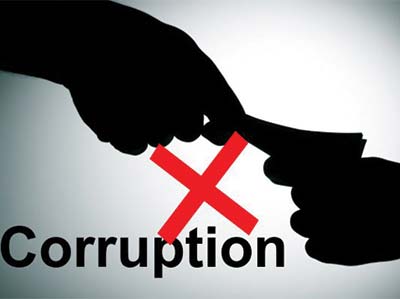Nigeria’s War Against Corruption: Successes and Challenges in the Last 64 Years
Nigeria’s War Against Corruption: Successes and Challenges in the Last 64 Years
Nigeria’s fight against corruption has been a long-standing battle, but there’s progress that attracted celebration, especially as the nation commemorates its 64th Independence anniversary.
The first anti-corruption body in Nigeria after independence was set up in 1962 headed by Justice George Coker to investigate allegations of corruption against some officials of the defunct Western Region. Another commission was set up in 1967 to investigate the assets of 15 corporations in the defunct Mid-Western Region. In the report of the Commission, all the public officials were indicted of corruptly enriching themselves.
The Olusegun Obasanjo administration established the Independent Corrupt Practices and Other Related Offences Commission (ICPC) in 2000. The ICPC is responsible for investigating and prosecuting high-profile corruption cases.
Similarly, the Economic and Financial Crimes Commission (EFCC) was established in 2003 to focus on financial crimes. Other statutory anti-corruption bodies include the Code of Conduct Bureau (CCB), The Bureau of Public Procurement (BPP) and the Extractive Industries Transparency Initiative (EITI)
Nigeria has achieved some successes in the fight against corruption. The EFCC recovered at least $750 million in local and foreign currency linked to corruption and fraud in 2021. Also, initiatives like Transparency Information Technology have contributed to reducing the average duration of corruption cases from eight years to three to four years. It is important to state that the Transparency Initiative Technology’s corruption cases database has tracked over 4,500 cases, providing valuable insights for policymakers and researchers.
President Bola Ahmed Tinubu’s administration is building on these foundations. His government’s commitment to transparency and accountability is evident. The whistle-blower policies and anti-corruption agencies’ efforts will continue to yield positive results in the fight against corruption in Nigeria. The Tinubu administration has focused on strengthening institutions by enhancing the effectiveness of anti-corruption agencies especially ICPC, EFCC, and EITI. The government is also implementing open governance initiatives to promote accountability and transparency as key tools in curbing corrupt practices. The administration has also made efforts to curb corruption by urging civic engagement by encouraging citizens to participate in reporting corruption and promoting a culture of integrity.
Despite these successes, corruption remains a critical issue in Nigeria.
The World Justice Project Rule of Law Index report shows that Nigeria ranks 120 out of 140 countries surveyed on the absence of corruption. The reasons for this low ranking could be attributed to limited political will to accelerate the fight against corruption.
Surprisingly, the frequency of bribery is on average higher in rural areas than in urban areas, placing Nigeria at 145 out of 180 countries ranking as contained in the Corruption Perception Index by Transparency International in 2023. The bribe payers living in urban areas paid an average of 4.5 bribes, while in rural areas paid an average of 5.8 bribes. The report indicated that bribery prevalence has remained relatively stable compared to four years ago in 2024.
The struggle against corruption is often hindered by limited political will, inadequate structures, a weak judicial system, and pervasive corruption. Corruption has spread to virtually all spheres of society, including the civil service, public service, private sector, and civil society.
To combat corruption effectively, Nigeria needs to address its underlying causes like the use of public resources to secure the loyalty of people and other forms of loyalty that lead to graft. The country’s patronage system perpetuates corruption and undermines institutions.
To overcome the challenges, Nigeria must strengthen institutions by ensuring the independence and effectiveness of anti-corruption agencies; ensure accountability by holding public officials accountable for their actions; promote transparency by implementing open governance initiatives; protect whistle-blowers and encourage civic engagement to foster a culture of integrity among citizens. By adopting these measures, Nigeria can overcome the challenges of corruption and manage its effects to the barest minimum towards achieving sustainable development.
Nigeria’s war against corruption is far from over. While progress has been made, the country must address the root causes of corruption and sustain efforts to combat it. With persistence and collective action from the government, civil society organisations, and citizens, Nigeria can become a more transparent and accountable nation for a better future for the people.



Comments are closed.